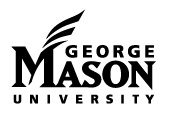The second international conference for Islamic cooperation for a peaceful future of Afghanistan was held in Kabul on June 19th, 2012.
The three day conference was attended by religious scholars and civil society representatives from all over Afghanistan as well as renowned Islamic scholars from around the world, including India, Egypt, Pakistan and Tajikistan.
The participants in this conference discussed the current insecurities and violence plaguing Afghanistan and emphasized on the need to use religious practices and teachings of Quran & Sunnah to help eliminate violence and build peace in this country. They also proposed constructive & appropriate solutions to put an end to the current crisis in the country.
This conference was facilitated by George Mason University, Kabul University, Academy of Science of Afghanistan, Civil Society Development Center and Organization for Peace and National Development. The conference started on the 19th of June and continued until 21st June 2012.
Prominent senior scholars and personalities who addressed the conference’ participants in the first day included Dr. Nematullah Nojumi senior member of the Center for World Religion, Diplomacy and Conflict Resolution at George Mason University, United Nation’s Special Representative for Afghanistan Jan Kubis, Chairman of Afghanistan’s High Peace Council Mr. Sallahudin Rabbani, Afghanistan’s Hajj and Religious Endowment Affairs Minister Dr. Yusof Nyazi Haj, Minister of Information and Culture Sayed Makhdom Raheen, and the head of the joint secretariat of Afghanistan’s High Peace Council Sayed Masoom Stanikzai, as well as a number of other Islamic figures.
The international figures who addressed this conference included Dr. Dawlat Usman Deputy chairman of Islamic Revival Party of Tajikistan who is also a member of Tajikistan’s Academy of Science, Mufti Mohammad Ejaz Qasemi, University Lecturer as well as teacher of Islamic Education in Deoband Madrasa of New Delhi, Sheikh Nasrudin Ali Shahban representative of Alazhar University in Afghanistan, Abdul Rauf Farooqi founder of Islamic Research Center in Lahore city (Pakistan) and Dr.Ahmad Jan a renowned scholar and researcher of Islamic education in Pakistan.
The national and international participant discussed practical steps on peacemaking based on Islamic instructions, as well as teachings of Islam on human rights, non-violence, tolerance, peacemaking and pluralism. They also discussed the role of Afghanistan’s High Peace Council, religious leaders and Imams in restoring peace in Afghanistan and how to establish a society based on moral and religious principles in particular during the transition period from war to peace in this country.
The above subjects were also put to open group discussions so that the views and opinions of all national and international participants would be used to generate a unanimous declaration based on views, opinions and guiding of the most prestigious Islamic scholars and thinkers of Afghanistan and the world.

